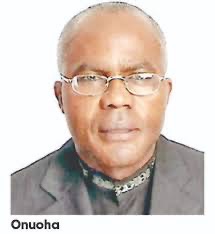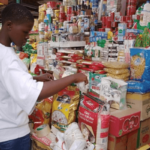WHEN a regime has almost two dozen spokespersons, there will be a tendency for redundancy for some of its operatives. Indeed, it will not be beyond such spokespersons to stoke attacks on their principal or administration from opponents and critics. I once heard a story of a press secretary who had a set of reporters to whom he ‘leaks’ embarrassing stories about a governor, his principal, and the state government, his employer. Then the same press secretary will turn around to ask the governor for a humongous special budget to fight the ‘bad press’. Of course, he will pocket a significant portion of the vote, gather his reporter-collaborators and a few more from outside the clique, and start a counter publicity blitz. I learnt that on one such occasion, the governor was not satisfied with the result of the counter blitz. But the press secretary succeeded in persuading his principal that the odium on the image of their administration would have been worse and debilitating if he had not embarked on the charm offensive. At the time of this incident social media was not pervasive, and fact checking was uncommon. Then governance was a mystery, and the ways of government operatives were mysterious.
So it was that last weekend the spokespersons of the federal government who were apparently in search of what would keep them busy and relevant in a regime which is neckdeep into propaganda, and sometimes the propagation of outright falsehoods, caused a factual and innocuous editorial opinion of Daily Trust, a national newspaper based in the northern part of the country to attract attention, prominence and weight. The crime of the newspaper which attracted the ire of the apparatchiks of the federal government, and their furious reaction, was that the newspaper placed a mirror in front of the ranking officers of the regime. The editorial which rankled this regime to no end was headlined “Nigerians Are Hungry”. The headline was, sadly still is, a matter of fact. The data and statistics that were used to support the headline of the editorial were derived from credible government agencies here in Nigeria and from some other institutions abroad. In its attacks on the newspaper, the regime did not bother itself with faulting the assertion of the editorial headline [apparently because the headline was self evident] nor debunking the plethora of statistics as rigged or manipulated. Instead the Presidency only saw mischief and redherring. In fact the regime barely stopped short of invoking treason, its usual default tool for intimidating critics and silencing the opposition.
The editorial said in part: “To declare that many Nigerians are hungry, suffering, and struggling to survive under hard economic conditions imposed by several economic factors including record-high inflation rates is simply a restatement of the most obvious. While the terribly depleted purchasing power of the citizens continues to bite, the purported reduction of food prices has made little sense to millions of impoverished citizens as the all-season inflation continues to cripple micro and small-scale businesses; eating up entrepreneurs’ hard-raised capitals… As direct or remote consequences of the burden of survival, starvation and malnutrition have since become threats to the health and survival of citizens including a large population of children particularly in some northern states of the country. Earlier in April 2025, the United Nations Children’s Fund [UNICEF] had predicted that 33 million people in Nigeria including over 16 million children will not know where their next meal will come from in 2025. We are already there.
“With the long history of basic education on a receding tide in the country, the effects of this deplorable situation on school-age children is better imagined as it could deepen further. Malnutrition is a risk factor for low school enrollment, high absentism, early drop-outs, and low academic achievement. Similarly, malnourished children are prone to infections and illnesses, which affect school attendance. This is in spite of the hypothetical federal government funded school-feeding programme, which like many other government schemes, has evidently fizzled out. The continuous escalation of survival challenges in the country illustrates a clear disconnect between leaders and Nigerian citizens as if hardship is a virtue”.
The newspaper then proceeded to enumerate measures it believes could ameliorate the situation including the immediate suspension of value added tax on foods, suspension of other taxes; release by government of grains from strategic reserves and sale of same at subsidised prices to the vulnerable and less privileged; cash handouts to a category of families; and the intervention by public spirited and well-heeled individuals in providing succour for suffering Nigerians.
But the Presidency, in its angry reaction, rejected the opinion of the newspaper, saying that the editorial portrayed Nigeria as overwhelmed by hunger and economic hardship. It claimed that the newspaper’s position was “exaggerated, biased and alarmist”, and that it distorted facts and misrepresented government policies. The regime said that to stem hunger in the land it had embarked on some interventionist measures including releasing over 42,000 metric tons of grains from the federal reserves; procured additional 117,000 metric tons; and, scaled up nutrition support in six out of Nigeria’s 36 states. The regime also dismissed the assertion that the national currency, Naira, has become “worthless” by saying that the currency had recovered from N1,800/$1 in March 2024 to approximately N1,525/$1 this month. It said that the Home-Grown School Feeding Programme cannot be said to be dead because it is currently serving 9.8 million children in 53,000 schools. To shore up its counter argument, the Presidency said that the conditional cash transfer scheme is benefitting three million Nigerian households, and that about 400,000 are beneficiaries of student loans.
The attempt to compel Nigerians not to believe their reality in the last two years and their dire condition of living will do this regime no good. For the first time in the more than 50 years since the end of the civil war in 1970, some researchers in Ibadan, Oyo State, reported months ago that kwashiorkor had staged a return to the country. To be sure, kwashiorkor is usually prevalent in food-insecure and protein-starved countries. So it couldn’t have resurfaced in Nigeria in a void. Kwashiorkor is a form of severe malnutrition essentially characterised by a lack of sufficient protein intake. Kwashiorkor is often implicated for swelling in the feet, ankles, and hands; wasting of the muscle and loss of body mass; liver enlargement because of fat accumulation; various skin changes including lesions and depigmentation; thinning, brittle, and discoloured hair; and, weakened immune system which makes the body vulnerable to infections and illnesses and diseases.
The irony is that the rebuttal by the Presidency of the editorial by the Daily Trust newspaper that Nigerians Are Hungry turned out to be a confirmation. For instance, why release 42,000 metric tons of grains that were not targeted to serve a particular and specific emergency need caused by a natural disaster? And why procure another 117,000 metric tons of grains for distribution if all was well?
Further questions arise from the defence of the regime. What’s the essence of the so-called ‘nutrition support’ in only six of the country’s 36 states and the federal capital territory [FCT]? Were there natural disasters in the selected six states? Could it be that the six states were worse off in terms of the hunger ravaging the land than the remaining 30 states?
Next week we will return to this same subject starting with an in-depth analysis to support the newspaper editorial that this regime has within two years made our national currency, the Naira, ‘worthless’ in spite of the futile attempt by the Presidency to gaslight Nigerians.
Follow us on all social media platforms @dailyquery for news and analyses around the globe.


























